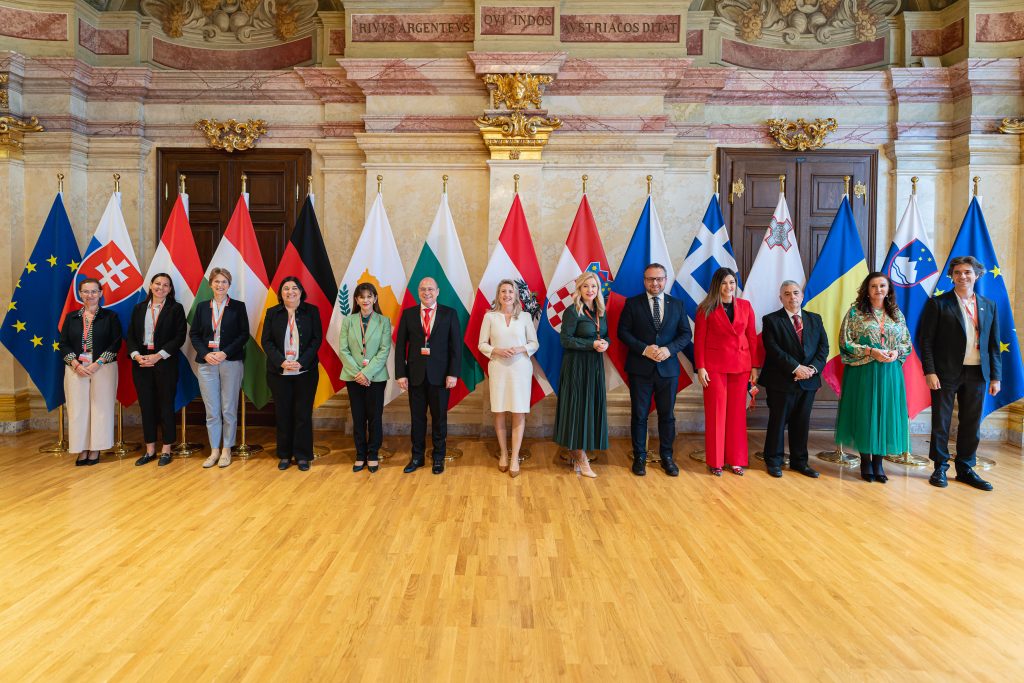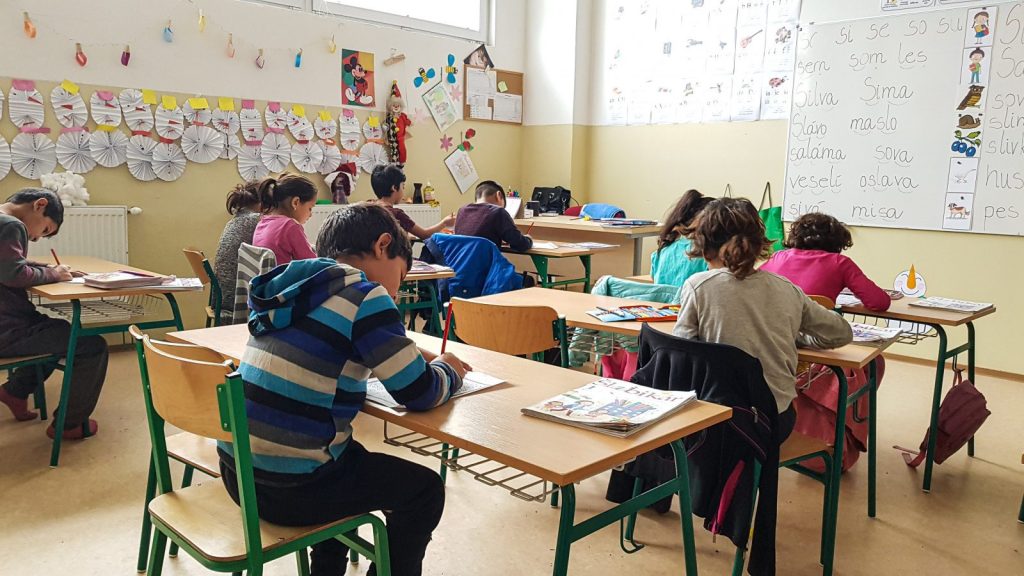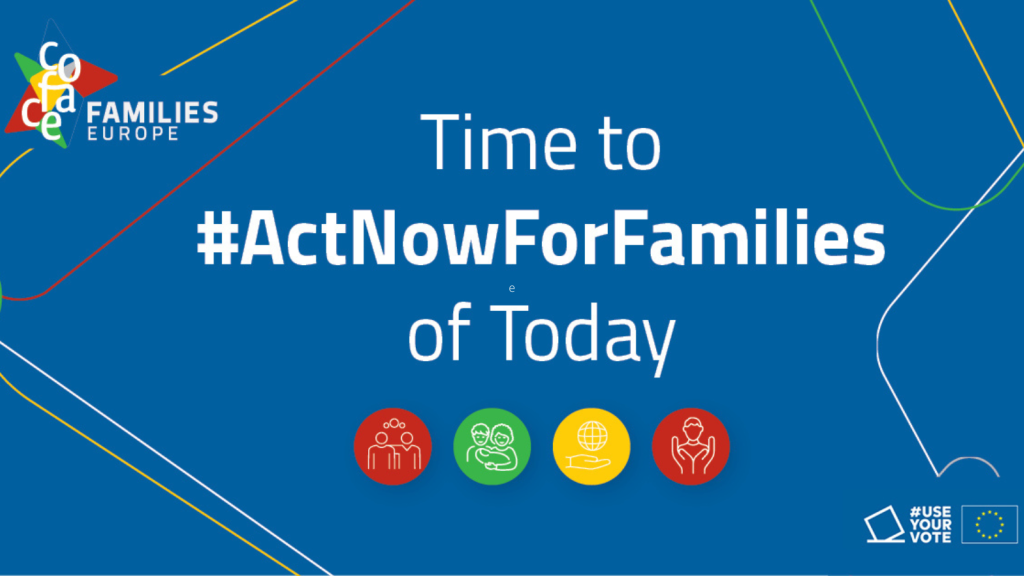The European Child Guarantee is the EU’s response to the high number of children in poverty who are affected by social exclusion and lack of opportunities to participate in society. After a long development process, the European Commission published a concrete proposal on this.
The European Child Guarantee aims to break the cycle of poverty and promote equal opportunities by calling on Member States to ensure that children in need have free access to basic resources they need for their well-being and development, including effective access to healthy nutrition.
In May 2021, The Association of German Family Organisations (AGF), together with the “Platform for Nutrition and Physical Activity (peb) discussed this specific aspect of the European Child Guarantee.
The expert meeting was structured in three parts, which focused on :
- the general situation of child nutrition in Germany,
- the significance of the first 1.000 days of a child
- the situation of child nutrition in schools and early child care institutions.
Each part was introduced by an input of one of the experts, followed by short comments of others and a joint discussion. In the first part results of a study conducted by Robert Koch Institut were presented. They showed that children from families with low socioeconomic status, in particular, consumed sweetened beverages disproportionately often and conversely had a high need for fresh fruit and vegetables. In addition, they tended to not take up school meals offered at lunchtime.
It was highlighted that “the Child Guarantee initiative is therefore extremely welcome, as it aims to reduce the impact of social inequality on children’s diets.”
One focus of the expert discussion was on the long-term significance in terms of nutrition of the “first 1,000 days” of children’s lives (perinatal phase). Great importance was given to the practice of introducing parents to more conscious healthy eating habits already at the beginning of their parenthood and the special role of midwives. There was also a plea for more “family orientation”, participation and appreciation. The importance of agreeing on uniform and unambiguous messages, for example on nutrition and exercise during pregnancy, infancy and early childhood was stressed.
Concerning schools and early childcare, it was highlighted that daycare and school catering, in particular, are a driving force for change towards a more sustainable world. School meals provide up to 40 per cent of children’s daily energy, and important health promotion and maintenance goals can be achieved in daycare and school catering settings. Last but not least, catering for children can have a long-term positive influence on their eating habits. It was mentioned that the implementation of nutrition standards in child daycare centres is not yet very advanced. Daycare centres need binding guidelines for dealing with the discrepancies between nutrition in the daycare centre and nutrition in the family environment.
Early child care and schools were seen as being destined for a paradigm shift. It was called for more trust in children to help shape their own nutrition. Great importance was given to the already existing and widely accepted nutrition standards set by the German nutrition association (DGE) and that they apply not only to traditional German cuisine but also potentially to a culture-specific diet, which can be implemented in accordance with them. In this context, it was called for a change from price competition to quality competition. Additionally, it was said that providing school meals at the primary level, free of parental monetary contribution would avoid experiences of discrimination among children and parents and bureaucracy would be reduced.
When addressing the question of how social differences “translate” into differences in behaviour in child nutrition and how “nutritional justice” could be shaped in the face of social inequality it was stressed that access to healthy nutrition should include not only economic support but also cultural aspects in order to enable participation.
Overall, the experts agreed that the sub-goal of the Child Guarantee, namely to reduce nutritional disadvantage among poor children, children at risk of poverty and children otherwise at risk of social exclusion, is an important task. The close link between socio-economic inequality, the unequal distribution of access to a balanced diet in the population and unequal health opportunities must be broken. The opportunity to shape the behaviour of children and their families with regard to nutrition in the long term was emphasised. In this context, the first 1,000 days play a special role, among other things because parents are then particularly amenable to receiving tips and support and at the same time important decisions are made about how to ensure good nutrition for the family in the future. With regard to institutional care, many children would benefit health-wise and socially in terms of equal opportunities from non-contributory daycare and school meals.
There was a plea for the gradual introduction of such provision, based on a scientific implementation and evaluation programme. It is precisely daycare and school catering that has the potential to bring about a change towards healthier eating habits for all children and their families. As regards the implementation, it was suggested, among other things, to promote comprehensive nutrition education for children and parents, so that people could take responsibility for their own decisions on a balanced diet. Parents should be involved in the planning of the food “culture” in the facilities. Nutrition must also be understood as an educational topic in daycare centres and schools and the competence of professionals in daycare centres and schools in the areas of nutrition and health must be promoted. To this end, education on the subject should be given more time and space in the training of nursery school teachers. In addition, the consistent implementation of quality standards for nutrition in daycare centres and schools is important.
Read the full report, here.





